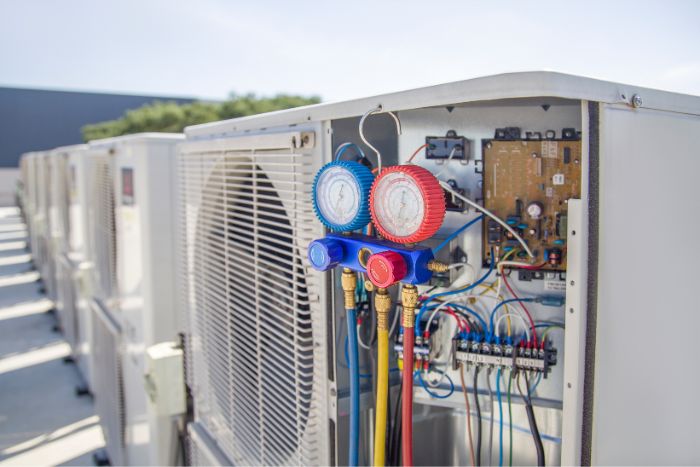Since 2021certain commercial buildings must be equipped with a building automation and control system (BACS).Building automation and control systems - BACS) where technically and economically feasible.
In particular, such a system must make it possible to :
- continuously monitor, record and analyze energy production and consumption data for technical building systems (e.g. heating, cooling, ventilation, lighting, etc.), and adjust their operation accordingly;
- detect energy efficiency losses in building systems;
- Inform the operator of opportunities to improve the energy efficiency of these systems.
The scope of this obligation has been extended and completed by a decree and order dated April 7, 2023.
What is the objective?
The aim is to improve energy management in commercial buildings in a context of energy sobriety and rising energy costs.
Which buildings are affected & what are their obligations?
The obligation to install an automation and control system applies to new and existing buildings:
- in which market or non-market tertiary activities are carried out, including those belonging to legal entities (companies, associations, etc.) in the primary (agriculture) or secondary (industry) sectors,
- AND equipped with a heating system or an air-conditioning system, whether or not combined with a ventilation system, with an effective power rating of over 70 kW (instead of 290 kW).
It is the responsibility of the owner of the building's heating or air-conditioning systems.
Note: for buildings where the heat or cold is generated by exchanging heat or cold with a district heating or cooling network, the generator output to be considered is that of the exchange station.
* Technical building system: any technical equipment for space heating, space cooling, ventilation, domestic hot water production, integrated lighting, building automation and control, on-site electricity production for a building or building unit, or a combination of several of these systems, including systems using renewable energy.
What controls are planned for these systems?
Building automation and control systems are subject to :
- Periodic checks
These checks are carried out by an external service provider or by competent in-house personnel. Written instructions must specify the frequency of interventions, the points to be checked and provide for the rapid repair or replacement of faulty elements.
These instructions are transmitted to the building automation and control system manager.
- Periodic inspection
At the owner's initiative, building automation and control systems must be inspected at least every 5 years.
This interval can be reduced to 2 years when :
- an automation and control system is installed or replaced;
- one of the technical systems connected to this automation and control system is installed or replaced.
The inspection includes :
- an on-site visit to the accessible parts of the automation and control system and the technical systems present in the building. This visit must take place on a partially or fully operational installation;
- a document check, including general information on the building and system being inspected;
- a conformity assessment of the various system functions;
- provide recommendations on the proper use of the existing system and possible improvements
For systems in place on April 8, 2023, the first inspection takes place no later than January1, 2025.
Are exemptions from controls/inspections possible?
Technical systems connected to a building automation and control system are exempt:
- periodic inspection of the energy efficiency of boilers (excluding ICPE) with an output of between 400 kW and 20 MW;
- control of pollutant emissions for boilers (excluding ICPE) with a power rating of over 400 kW;
- the requirement for periodic inspection of thermodynamic systems with an output of over 70 kW.
Conclusion
We invite you to review the situation with your heating and air conditioning maintenance department in order to :
- Establish the need for an automation and control system if you do not have one and are concerned by the obligation;
- inspection of this system.
Code de la construction et de l'habitation Articles R. 175-1 to R. 175-9 / Amended by Decree no. 2023-259 of April 7, 2023 [JORF of April 8, 2023].
Decree of April 7, 2023 on automation and control systems for commercial buildings [JORF of April 8, 2023].
Photo credit: 564486980 @bancha


.svg)



